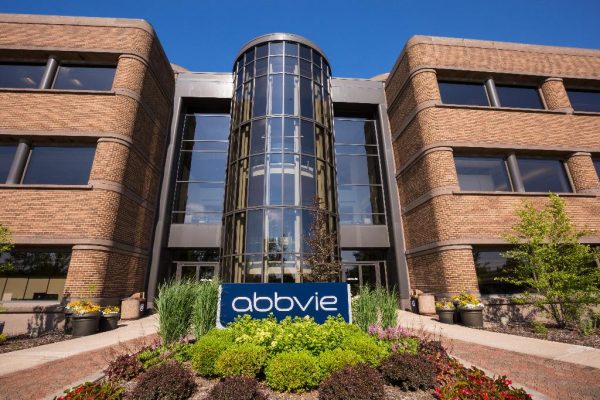
An AbbVie schizophrenia drug acquired as part of a multi-billion dollar deal has failed two mid-stage studies, dealing a setback to the company’s plans to compete with a Bristol Myers Squibb medication that was recently approved in schizophrenia and is projected to become a blockbuster seller across several psychiatric indications.
The preliminary results announced Monday are from two placebo-controlled Phase 2 studies designed to evaluate multiple doses of emraclidine, a once-daily drug, over the course of six weeks. The main goal was to show a reduction in score from baseline (a lower score indicates improvement) compared to placebo, according to the Positive and Negative Syndrome Scale for Schizophrenia (PANSS), a rating scale used to assess schizophrenia symptoms. AbbVie said both studies show the experimental drug achieved numerical improvements in score compared to a placebo, but the changes were not enough to be statistically significant. The company added that the drug was well tolerated with a safety profile comparable to what was observed in Phase 1b testing.
Many currently available schizophrenia drugs work by blocking dopamine type 2 (D2) receptors. But these drugs offer limited efficacy while introducing side effects that make it hard for patients to stay on treatment. Drug developers have been looking for other targets. Emraclidine gave AbbVie entry into a group of companies developing drugs targeting muscarinic receptors, which are receptors in the central nervous system that play key roles in neuronal functions. Emraclidine is an agonist of the muscarinic acetylcholine receptor type 4, or M4 receptor. By selectively targeting and activating this receptor, the drug is intended to treat schizophrenia in a way that does not hit D2 receptors.
Emraclidine was initially developed by Cerevel Therapeutics, which had advanced the drug to the Phase 2 studies EMPOWER 1 and EMPOWER 2 when AbbVie reached an $8.7 billion deal to acquire the biotech late last year. Weeks after that announcement, BMS announced a $14 billion deal to buy Karuna Therapeutics, whose M1- and M4-targeting schizophrenia drug was already under FDA review. The September approval of that twice-daily pill, now named Cobenfy, made it the first muscarinic-receptor targeting drug to pass the FDA’s regulatory bar. Though emraclidine trailed the BMS product, AbbVie hoped to offer better safety and more convenience with once-daily dosing. Now AbbVie must figure out how to proceed with emraclidine, which is also in Phase 1 testing in Alzheimer’s disease psychosis.
“While we are disappointed with the results, we are continuing to analyze the data to determine next steps,” Roopal Thakkar, executive vice president, research and development, chief scientific officer, AbbVie, said in a prepared statement.
In a note sent to investors Monday, Leerink Partners analyst David Risinger described emraclidine’s PANSS scores as “surprisingly low.” Looking across trials, he noted that the AbbVie drug’s reduction in score was significantly lower than what was reported for Cobenfy’s Phase 3 test. The AbbVie drug’s studies also had higher placebo responses compared to the placebo group in the BMS drug’s study. Risinger added that emraclidine’s failure to show dose-dependent efficacy across the multi-dose studies is concerning.
William Blair analysts Myles Minter and Matt Phipps said the “absolute miss” of emraclidine in Phase 2 is a surprise, given the strength of the drug’s Phase 1 data. The failure all but removes a multi-billion dollar product from the AbbVie pipeline and calls into question the $8.7 billion Cerevel acquisition, they said.
“While additional details are necessary to fully understand the EMPOWER study outcomes, the results may suggest M1 and M4 agonism are needed to drive maximum benefit for patients, expanding Cobenfy’s first-mover advantage and ultimate market opportunity,” Minter and Phipps wrote.
Despite emraclidine’s disappointing Phase 2 results in schizophrenia, AbbVie still has more neuroscience shots on goal from its Cerevel acquisition and from other deals. This past April, Cerevel reported its drug candidate tavapadon met the main goals of its Phase 3 study in Parkinson’s disease. In May, AbbVie paid startup Gilgamesh $65 million up front to begin an R&D alliance focused on psychedelic medications for diseases and targets that were not disclosed. And late last month, AbbVie struck a $1.4 billion deal to acquire Aliada Therapeutics, which is in early clinical development with an Alzheimer’s disease drug developed from the biotech’s platform technology that gets large molecules across the blood-brain barrier.










